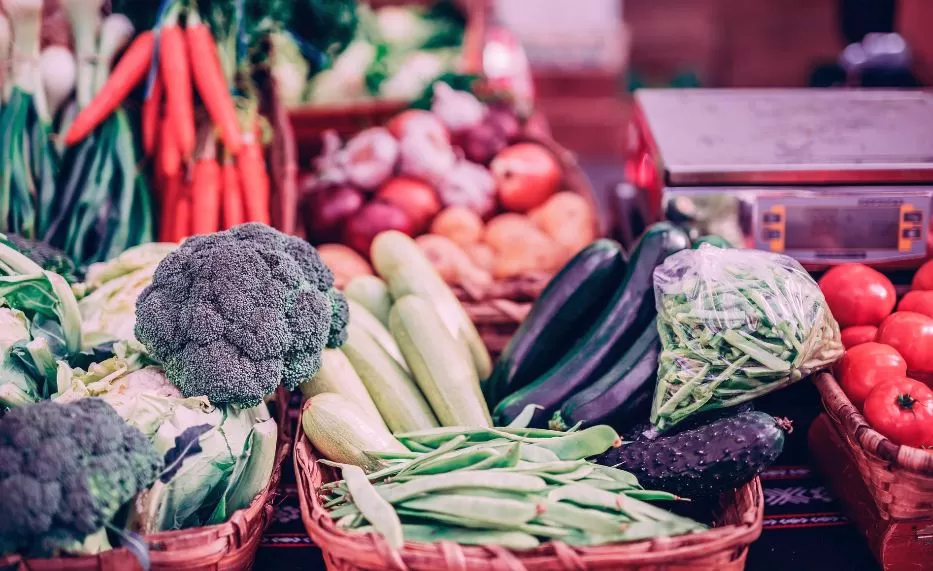How Dangerous Is A Lack of Vegetables in Diet?
We understand that not everyone likes vegetables. We’re sure you’ve heard that eating vegetables is beneficial to your body’s overall health and function, and that it can even help you lose weight. Is it really true, however, that it’s bad if you don’t consume enough vegetables on a daily basis? Sorry to be the bearer of bad news, but yes. Vegetables are an important part of a balanced diet since they provide both physical and mental and physical benefits to your body.
Supplements may help address nutritional gaps Lindsey Desoto, RDN, LD says in her article, but they won’t be able to provide all of the advantages of consuming whole food like vegetables and fruits.
How important vegetables are?
You should eat vegetables every day since you require a daily intake of vitamins. Vegetables carry crucial vitamins. Some vitamins are stored for later use, while others are immediately used up. Fat-soluble vitamins, such as vitamins A, D, E, and K, are some of the vitamins that can be stored in the body. Water-soluble vitamins are also required for optimal body performance. All of the “B-complex” vitamins, including vitamins B1, B2, B3, B5, B6, B12, vitamin C, choline, biotin, and folic acid are found in this category.
Water-soluble vitamins are needed on a daily basis because they cannot or only stored in limited amounts in the body. Because the body cannot produce these vitamins, they must be obtained from food. Vegetables are unusually rich suppliers of a wide range of water-soluble vitamins when seen as a whole. That’s why numerous healthcare guidelines like the ones normally found on HealthCanal and the United States Food Pyramid advocate for eating 3 to 5 servings of veggies each day.
What are the dangers of a lack of vegetables in one’s diet?
Constant Hunger And Need to Fill Up
Fruits and vegetables are two of the best sources of complex carbs and fiber in your diet. Both of these nutrients are necessary for your body to feel satisfied for longer. However, if you don’t consume enough veggies, your body will be deprived of this high-fiber, complex carbohydrate source, leaving you hungry. The feeling of hunger is caused by rapid blood sugar rises and decreases, which can occur if you eat a low-fiber diet. Fiber can help keep your blood sugar constant, which means you won’t be as hungry as soon as you finish a meal.
Increased Risk to Various Diseases
As it passes through your gut, soluble fiber expands, slowing the absorption of substances like cholesterol and glucose. As a result, it can help manage the quantities of these chemicals in your blood, thereby lowering your risk of diabetes or high cholesterol. Furthermore, fruits and vegetables are high in phytochemicals, which are plant-based molecules that not only give these foods their color but also have the potential to reduce inflammation and potentially slow or stop tumor growth.
Problems With The Digestive Part of Your Body
Fiber is an indigestible carbohydrate found in vegetables and fruits that do not add calories to your diet but can benefit your digestive health. Insoluble fiber helps you in avoiding constipation and hemorrhoids by increasing your large intestine’s bulk of waste products, speeding up the movement of your waste as it moves through. A diet lacking in fiber can have the opposite impact.
Prone to Stress And Anxiety
Magnesium also aids relaxation by maintaining adequate GABA levels, a neurotransmitter that soothes the body and mind. It’s also involved in the body’s stress response system, and a lack of it is linked to increased anxiety and stress. Magnesium and stress have a two-way relationship: stress induces magnesium depletion, while magnesium insufficiency exacerbates stress. Magnesium is abundant in vegetables, particularly dark leafy greens like spinach. So, if you don’t eat enough vegetables, you’re likely to have low blood levels of this mineral.
Risks On Your Cardiovascular Health
A diet high in fruits and vegetables lowers the risk of heart disease and its consequences, according to a medical study. Individuals who consume more than five servings of fruits and vegetables per day are expected to have a 20% lower risk of heart disease than those who consume less than three servings per day. Those who are lacking the recommended amount of fruits or vegetables should consider adding essential oils for high blood pressure into their diet to help combat hypertension and other ailments that could persist from that type of diet.
Possible Impaired Vision
That old adage about carrots being good for your eyes isn’t entirely false. Carrots are high in vitamin A, and if you don’t get enough of it in your diet, it might cause visual problems, such as night blindness or worse. Corneal ulcers, dry eyes, and retinal degeneration which leads to blindness are all symptoms of vitamin A deficiency. Vitamin A is abundant in yellow and orange-hued vegetables, as well as dark leafy greens, so getting enough of these vegetables in your diet is essential for safeguarding your eyes.
What’s Next?
Why not be open to some ideas to boost your vegetable intake, even if you don’t enjoy the flavor, to avoid the negative repercussions of not eating vegetables? Smoothies, pureed soups, juicing, adding fruit to salads, and even hiding vegetables in sauces, frittatas, or mashed potatoes are all good options.










